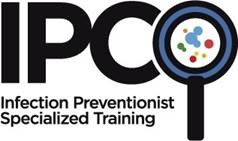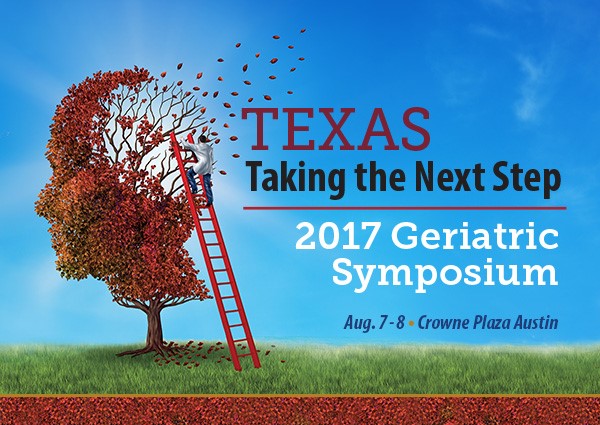Quality Topic of the Month:
June: Avoid PASRR Deficiencies by Ensuring Compliance
This article will explain why failing to follow the PASRR process could now cause neglect deficiencies for Texas nursing facilities. In addition THCA will highlight HHSC’s transition to a NEW paperless process for PASRR that goes into effect on June 23rd.
AHCA is ready to help you meet the new Infection Preventionist specialized training requirement finalized by CMS in the Reform of Requirements of Participation for Long Term Care Facilities. The course provides specialized training for healthcare professionals who seek to serve as Infection Preventionists. Through this Infection Preventionist Specialized Training (IPCO) course, individuals will be specially trained to effectively implement and manage an Infection Prevention and Control Program at their nursing facility.
The course is an online, self-study program with 23 hours of training. It includes online lectures, case studies and interactive components taught by an array of experts from around the country.
AHCA’s Infection Preventionist Specialized Training (IPCO) training content includes:
- A thorough explanation of the impact of infections on the people who live, work and visit nursing centers.
- Definitions of essential components of an effective infection prevention and control program.
- Identification and management of common infections.
- Strategies to prevent the spread of infections.
- Identification and description of the steps necessary for infection surveillance, antibiotic stewardship, investigating, tracking and reporting infections
- Successful implementation strategies.
In addition the training addresses both clinical and organizational systems, processes and cultural aspects of infection prevention and control which are fundamental to effectively leading and administering a nursing facilities Infection Prevention & Control program.
Course completion must occur within 9 months of the date the registrant starts the program. Participants must complete all training modules and successfully pass quizzes and final test with a grade of 80 or above to receive a certificate of completion from AHCA, valid for 3 years. 23 ANCC contact hours are available for completion of this program.
The course is open to AHCA/NCAL members for $450 and non-members for $650. Group purchase with discount structure is available for groups of 25 or more. There are no refunds and no transfers.
This activity has been planned & implemented in accordance with the accreditation requirements & policies of the American Nurses Credentialing Center’s Commission on Accreditation (ANCC) through the joint providership of the University of Nebraska Medical Center College of Nursing Continuing Nursing Education (UNMC CON CNE) (provider) and American Health Care Association. UNMC CON CNE is accredited with distinction as a provider of continuing nursing education by the ANCC.
For more information on the Infection Preventionist specialized training, including renewal details click here.
Register Now for the 2017 Geriatric Symposium
Aug. 7-8, 2017
Crowne Plaza Austin
If you are a health care professional, family member or private caregiver who cares for an older person, make plans to attend the 2017 Geriatric Symposium: Texas Taking the Next Step. The event is free and continuing education hours will be available for nurses and other professionals (see the information below).
The 2-day event will focus on dementia in long-term and community settings.
Want to Learn More?
The University of Texas Center for Excellence in Long Term Care in Partnership with HHSC and the Quality Monitoring Program present:
Transition to Practice in Long Term Care setting Training
This FREE three Day program is designed to assist a Nurse transitioning from either nursing school or another care setting to the Specialty area of Long Term Care successfully.
If you have new nurses to your nursing home and you feel they could benefit from transition training why not make arrangements to send them today.
The first session being offered is June 13 – 15, 2017 in Austin.
For more information on the program and to register please click here.
Register Now for Free ANE Training Academy Sessions
Nursing facility providers can now sign up to learn how to screen for, identify, and prevent abuse, neglect, and/or exploitation (ANE). The 2-day ANE Training Academy sessions are free and continuing education hours will be provided. Sessions run from May through July 2017. Exact locations and dates can be found on the registration site.
Each 2-day course is open to all nursing facility staff, most especially those providing direct care to facility residents.
Email questions to karen.lose@hhsc.state.tx.us.
Register Now for Free Trauma-Informed Care for People with IDD Trainings
Texas Health and Human Services is hosting 6 training sessions for Trauma-Informed Care for Individuals with IDD. The training is free and will be held in locations around the state. Click here to register.
The training will provide participants practical ways to implement trauma-informed care approaches when supporting people with IDD. Attendees will learn about:
• Signs and symptoms of trauma
• Effects of trauma on development and behavior
• Effects trauma has on people with an IDD and co-occurring behavioral health conditions
The courses are designed for educators, case managers, direct care workers, family members, mental health professionals and other community providers.
Two tracks are being offered: a general session and a clinical train-the-trainer session. Attendees can register for 1 or both sessions; the courses are held on separate days.
“The Quality Initiative Series – Succeeding in the Midst of Change”
The AHCA Quality team is creating a series of FREE education Webinars which covers the best practices to help members with many of the new regulatory, payment or public reporting changes. The series is designed to provide critical support to members. You can register for the first webinar here.
The schedule is as follows:
June 21, 2017
6 – Functional Outcomes
September 20, 2017
7 – Customer Satisfaction/Experience
November 15, 2017
8 – Hospital Admissions in Long Stay Settings
Building Prevention into Every Day Practice: Framework for Successful Clinical Outcomes Series – Part 11 of 13
This is part of a series featuring one element of the Building Prevention into Every Day Practice: Framework for Successful Clinical Outcomes. Success in achieving positive resident/patient outcomes is even more critical now than ever before. The link between quality and payment in long term and post-acute care is growing stronger, as evidenced by the SNF Value Based Purchasing Program (VBP), Improving Post-Acute Care Transformation (IMPACT) Act, SNF Quality Reporting Program (QRP) and more.
In addition, regulatory activity is intensifying through focused surveys on adverse events, dementia care and MDS. The Five-Star Rating system and Nursing Home Compare have been revised and will add items in the future as it broadens public reporting and transparency. Most importantly, consumers expect and deserve high quality care.
The entire framework outlines key elements from both an organizational and clinical nature that are critical to successful clinical and organizational outcomes. Positively, these elements reflect common denominators that cross multiple care situations. Therefore, instead of being yet another initiative or single focused project to achieve just one outcome, it is a way of acting, thinking and being that will benefit multiple areas across an organization. Each element is addressed in detail throughout the framework.
This month THCA is featuring the element of Clinical Foundation: Effective Monitoring
Key Takeaways: Effective Monitoring
- Effective monitoring is key to refining and improving processes and performance.
- Effective monitoring requires gathering enough details to be able to draw appropriate conclusions.
- Effective monitoring is important for system integrity.
Probing Questions for Team Reflection and Discussion:
1. How do we know if the monitoring systems and processes in our center are optimal?
2. How do we know if we are effectively monitoring? What outcomes do we expect?
3. Are the monitoring systems and processes dependent on an individual? If so, do we have a plan to continue monitoring if that individual is absent?
Visit the AHCA Clinical Practice website to learn more about the element of “Clinical Foundation: Effective Monitoring” and answers to these key questions:
What does this mean? Why is this important? What are some examples? What is my part (as an individual employee, manager or practitioner)? What can my organization do?
Start somewhere, pick one element and work through it with your team.
Enjoy the journey through the framework!



